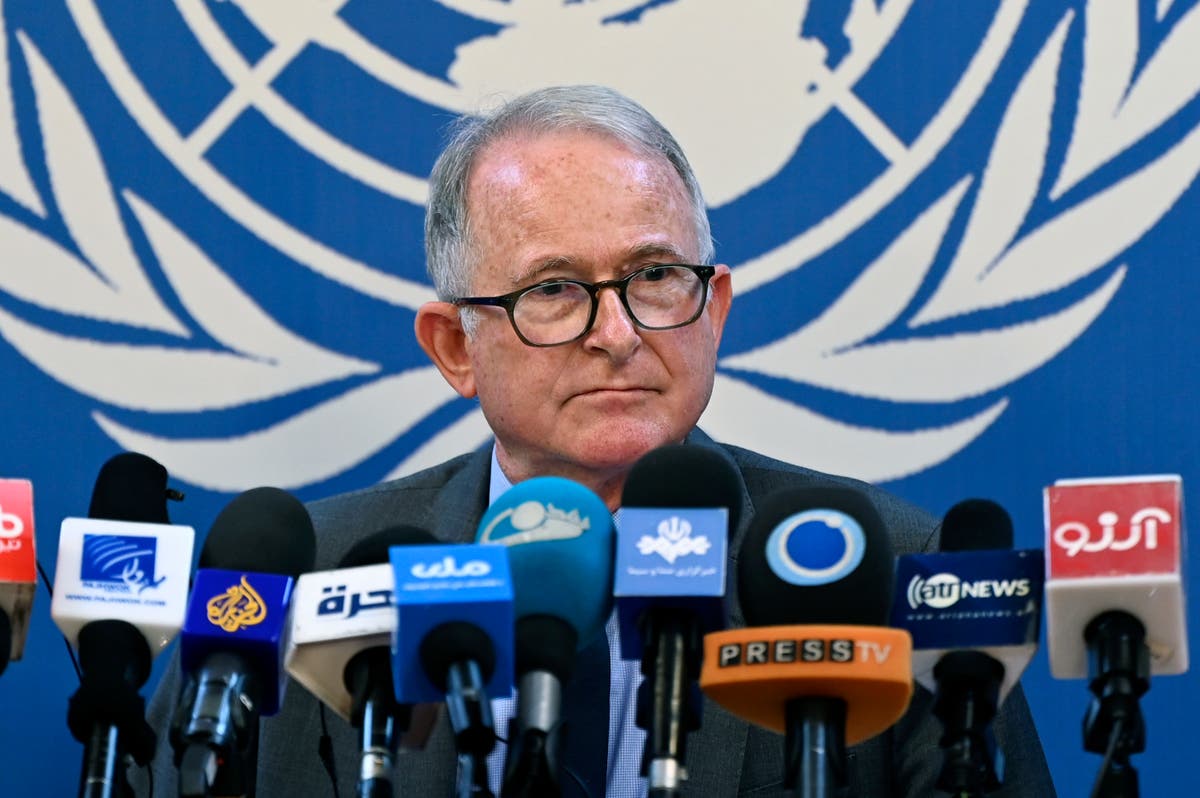
The United Nations’ special rapporteur on human rights in Afghanistan on Thursday expressed concern over the deterioration of rights in the country and called on the ruling Taliban to reverse new restrictions on women.
Richard Bennet spoke to journalists at the end of an 11-day visit to Afghanistan, his first since being named last month to his post.
His visit came as the Taliban, who seized power when they overran the capital of Kabul in mid-August as the United States and NATO were in the final weeks of their withdrawal from Afghanistan, have started enforcing a sharply tougher line.
In recent weeks, they issued edicts requiring women to cover their faces except for their eyes, including women presenters on TV, and banned girls from attending school past the sixth grade.
At the same time, Afghanistan has seen persistent bombings and other attacks on civilians, often targeting the mainly Shiite Muslim ethnic Hazara minority. Most of the attacks have been claimed by the Islamic State group’s affiliate in the country, which is a bitter rival of the Taliban.
Bennett said Afghanistan’s de facto authorities — referring to the Taliban — have failed to acknowledge the magnitude and gravity of abuses being committed, many of them in their name, and their responsibility to address them and protect the entire population.
“I expressed serious concern about the deterioration of human rights across the country, and the erasure of women from public life is especially concerning,” Bennett told reporters. In a statement issued at the same time, he called on the Taliban to “immediately reverse policies and directives that negatively impact women.”
His comments follow a statement Tuesday from the U.N. Security Council that called on the Taliban to “swiftly reverse” restrictions limiting girls’ access to education and women’s employment, freedom of movement and “full, equal and meaningful participation in public life.”
The new edicts have brought the country closer to the harsh measures imposed by the Taliban when they first ruled Afghanistan from 1996 to 2001. At that time, they subjected women to overwhelming restrictions, banning them from education and participation in public life and requiring them to wear the all-encompassing burqa.
During his visit, Bennett held talks with Taliban leaders as well as toured the country, meeting civil society groups, rights activists and minority communities, including the Hazaras.
Speaking to the press, he called for investigations into the militant bombings targeting the Hazaras, other Shiites as well as Sufis, a mystical trend of Sunni and Shiite Islam that militants revile as heretical.
Such attacks “are becoming increasingly systematic in nature and reflect elements of an organizational policy,” he said, adding that they show “the hallmarks of crimes against humanity.”
On Wednesday, at least 14 people were killed in a series of explosions. In one, a bomb ripped through a mosque in Kabul where people were praying, killing five and wounding 22. In the northern city of Mazar-e Sharif, three minivans were hit by bombs, killing nine and wounding 15, all of them Shiites. The Islamic State group claimed responsibility for the minivan bombings.
Bennett also pointed to “a high number” of reports of intimidation, harassment, attacks, arrests and in some cases killing or disappearances by authorities targeting journalists, prosecutors and judges, as well as civil society for exercising their right to peaceful assembly and association.
Bennet said the Taliban stand at a crossroads, where either society would become more stable and a place where “every Afghan enjoys freedom and human rights — or it will become increasingly restricted.”
If the Taliban can meet benchmarks, including opening schools fully for girls, establishing a more representative administration and allowing dialogue, he said, “the risks of further instability and suffering in Afghanistan may be mitigated.”







